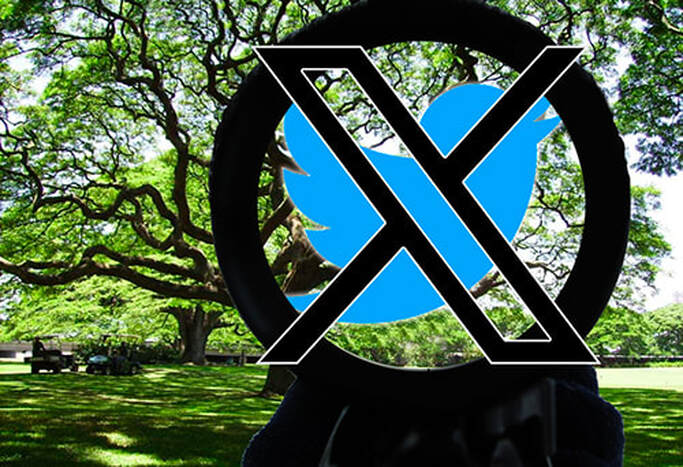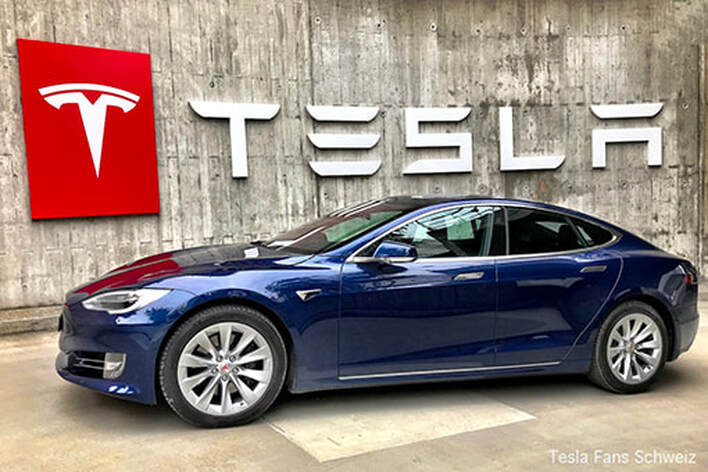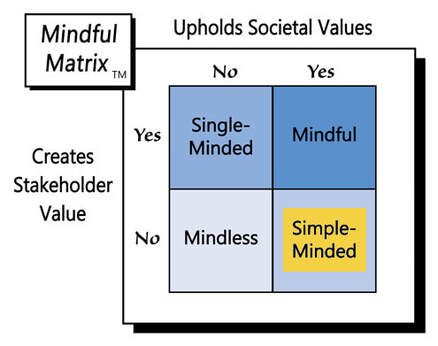author of Honorable Influence - founder of Mindful Marketing
Like a quick-moving summer thunderstorm that seems to emerge from nowhere, Twitter’s announcement that it was replacing its acclaimed name and famous bird with the moniker/graphic “X” seemed to catch even the most astute business analysts by surprise.
In reality, the curious move was several months, if not years in the making. This past April new-owner Elon Musk formally changed the company’s legal name to X Corp. He also had gained ownership of X.com six years earlier, which makes one think that the rebrand was more of a long-term plan than a knee-jerk reaction to Musk-revival and Meta founder Mark Zuckerberg’s recent launch of Threads.
Regardless the timing or the reason, to say the response to Twitter’s rebrand has been critical is certainly an understatement. Some of the criticism has included:
- ‘”Completely irrational’: By changing Twitter’s name, Elon Musk is wiping out $4 billion to $20 billion in brand value” – Fortune
- “This sudden transformation poses a significant obstacle for marketers who had been relying on the platform as part of their social media strategies.” – Digiday
- “It’s rare for corporate brands to become so intertwined with everyday conversation that they become verbs. It’s rarer still for the owner of such a brand to announce plans to intentionally destroy it.” – AdAge
- “I am concerned that Musk will continue to make random changes to the platform, either alienating more casual users of the service who tend to be people my company would market to, or change the advertising tools that allow us to target users.” – Brian Chevalier-Jordan, CMO at National Business Capital
All of the above seem like valid criticisms; however, the last one appears to have forgotten the remarkable number of successful business innovations Musk has to his credit:
- The Boring Company
- Neuralink
- PayPal
- Tesla
- SpaceX
All this to say, Musk and those who work with him are likely extremely competent people. You can’t build the world’s leading brand of electric vehicle and launch people into space without having significant engineering and business acumen.
Given Musk’s elite team members and track record, maybe the rebrand from Twitter to X is some kind of marketing rocket science that’s beyond the ability of casual observers and even most marketing professionals to understand.
I have no inside information on Musk’s strategy, but here are a few considerations that may have gone into the surprising decision:
1) Appeal to Gen Z: Overtime, virtually every brand loses followers simply because its core demographic’s wants and needs change as it gets older and those consumers age out of the market. So, companies constantly need to be making inroads with the next generation, which is about to age into the market.
As someone who works with many Gen Zs, my sense is that Twitter has been falling out of favor with them, not unlike Facebook has with this young age cohort. Maybe a younger, hipper feeling brand would help them reconsider.
2) Restore Relevance: Even consumers whose needs haven’t changed can grow tired of a brand over time. Most of us experience this kind of satiation effect whether it’s with the music we listen to or the food we eat.
To avoid stagnation or worse, customers switching to other firms’ products, brands sometimes will attempt a refresh so they’re perceived as new and exciting, like Jell-O did recently for the first time in ten years.
Aside for some minor tweaks, it didn’t seem like Twitter had changed much over the last decade, so maybe a major brand refresh was in order, not just for Gen Zs but for every user who was growing bored with the brand.
3) Regain Attention: Brands want to be top-of-mind, which helps in their ongoing efforts to retain and grow business. When consumers stop hearing about them, they may stop thinking about them and purchasing from them.
Simply slipping out of the news cycle is bad enough; it’s even worse to be replaced by a competitor, which is what happened to Twitter thanks to Meta’s new Threads.
These three are realistic reasons for Twitter to consider rebranding, but as the earlier criticisms implied: Was this refresh worth the very high costs?
Perhaps no cost loomed larger than this one AdAge and others identified: Abandoning the verb to “tweet.” Very, very few organizations are ever so fortunate as to have their brands turned into verbs, e.g., Google, Photoshop.
Of course, firms need to be careful that their brand names aren’t used generically to represent the entire product category (e.g., calling any brand of tissue a Kleenex), which can lead to a firm losing its legal trademark protection.
Still, there is tremendous value to having so much mindshare with consumers that they turn the noun of a company into an action. It’s hard to imagine that any or all of the three refresh reasons would warrant Twitter abandoning that extremely unique competitive advantage.
There’s also a perceptual disconnect between what social media typically stands for and the psychological meaning of “X.” Social media such as Twitter, tend to be about connecting people and having conversations, whereas “X” often represents the opposite. For instance, an “X” is often a person with whom one no longer associates, e.g., X-spouse, X-roommate, etc.
Ironically, “X” is also the tiny symbol that people often click on to close a webpage or an app. In fact, if someone says, “X out of that,” we know they’re giving a command to close something digital. In short, changing people’s existing interpretations of “X” from negative to positive is a very tall order.
Musk is among the most talented entrepreneurs of this generation, and he may deserve to be counted among humanity’s most innovative thinkers, but even business savants sometimes make mistakes, for instance:
- Henry Ford’s first automobile firm, the Detroit Automobile Company, failed miserably, leading him to bankruptcy.
- Walt Disney was fired from his job at a newspaper because he “lacked imagination and had no good ideas.”
- Steve Jobs was kicked out of Apple, the company he co-founded.
Perhaps hindsight will prove 20/20, and history will exonerate the Twitter/X rebrand a few years or more from now. Now, though, it looks like it may go down as one of Musk’s bigger mistakes and an unfortunate instance of “Simple-Minded Marketing.”
Learn more about the Mindful Matrix.
Check out Mindful Marketing Ads and Vote your Mind!




 RSS Feed
RSS Feed